IRGC Chief Threatens Europe With ‘Consequences’ If Listed ‘Terrorist’
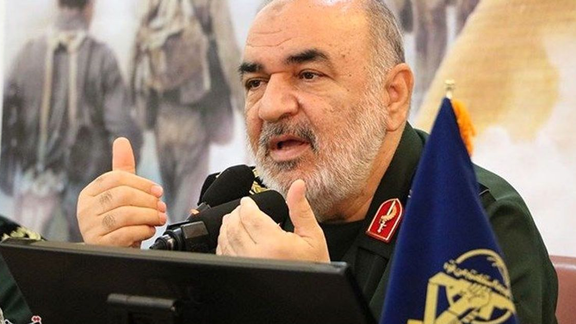
The commander of Iran’s Revolutionary Guard has threatened European states that they will “suffer the consequences” if they designate the IRGC as a terrorist organization.

The commander of Iran’s Revolutionary Guard has threatened European states that they will “suffer the consequences” if they designate the IRGC as a terrorist organization.
Hossein Salami said Saturday “Europe has not learned lessons from its past mistakes and thinks it can undermine the IRGC… with such statements,” he declared.
He made the comments after a meeting with the speaker of the Iranian parliament Mohammad Bagher Ghalibaf (Qalibaf).
Salami also claimed that Europe owes its current security to the IRGC, saying “If it wasn’t for the efforts of the IRGC, especially the Quds Force and martyr Soleimani, the terrorism volcano created by the Americans would have engulfed the Europeans and the security that prevails in Europe today would have been destroyed.”
Ghalibaf and other Iranian lawmakers have also threatened European armed forces with a “terrorist” designation.
The Saturday meeting between the IRGC commander and parliament speaker, who is a former IRGC commander, was aimed at coordinating a potential response to the EU’s move.
The European Parliament overwhelmingly passed a resolution Thursday calling on the EU and member states to designate Iran’s Revolutionary Guard as a terrorist group.
The resolution demands Iranian authorities end the crackdown on popular protests that started last September after a 22-year-old woman was killed in hijab police custody.
It also demands that Europe should sanction the Islamic Republic’s Supreme Leader Ali Khamenei and its president Ebrahim Raisi.
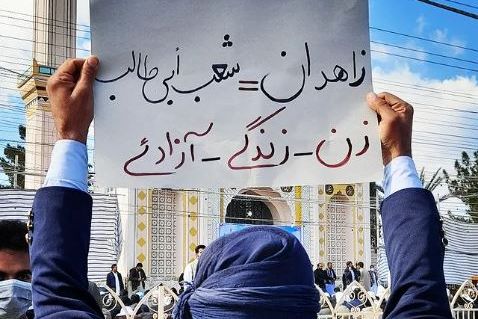
Mowlavi Abdolhamid delivered yet another fiery sermon in southeastern Zahedan Friday while another Sunni imam, Mowlavi Gorgij, was put under house arrest in northern Iran.
“A government that does not listen to the voice of the people does not deserve to rule,” said Mowlavi Abdolhamid in his Friday sermon in Zahedan, capital of the restive Sistan-Baluchestan Province.
Thousands of Abdolhamid’s congregation took to the streets in Zahedan for the 16th consecutive week after his sermon and chanted “Down with the Dictator” and “Khamenei is a murderer, his rule is illegitimate”.
The Sunni Baluch population have taken to the streets in Zahedan every Friday after prayers since September 30 when government forces cracked down on protesters and killed more than 80 protesters.
Similar protests were held Friday in Rask, another city in Sistan-Baluchestan, in support of Abdolhamid and Mowlavi Abdul Ghaffar Naghshbandi, another Sunni Baluch cleric. In the past four months Naghshbandi has been under pressure from the authorities for confirming that allegations of a police chief raping a fifteen-year-old Baluch girlwere not true.
A Revolutionary Guard commander, Brigadier General Mohammad Karami, was appointed as provincial governor three weeks ago. Security measures and restrictions in the province and particularly its capital Zahedan have escalated to an unprecedented level.
In his sermon this week, Abdolhamid also protested to the doubling of checkpoints in Zahedan. “Seven stop and search checkpoints have turned into fifteen,” he said.
The new measures include at least fifteenconcrete block stop and search checkpoints on roads leading to Zahedan to control the flow of cars into the city, with security forces demanding identification and often questioning passengers. Internet connection has also been heavily restricted in the province since protests began four months ago.
Abdolhamid also argued that the government’s unjustified security-driven attitude to Sistan and Baluchestan impedes development as it discourages investment and progress. “People will establish security themselves [if allowed],” he said.
By “security-driven attitude” Abdolhamid apparently meant the government’s and the Shia establishment’s general lack of trust in Sunni communities across the country. Some officials and Shiite clerics who see Iran's Sunni minority as a threat to the Shia establishment occasionally raise alarm over the growth of the Sunni population in Iran.
Over 1,300 kilometers north of Zahedan, in the northern Golestan Province where there are large Sunni Baluch communities living for decades, another Mowlavi (Imam), Mohammad-Hossein Gorgij, has reportedly been put under house arrest in Galikesh.
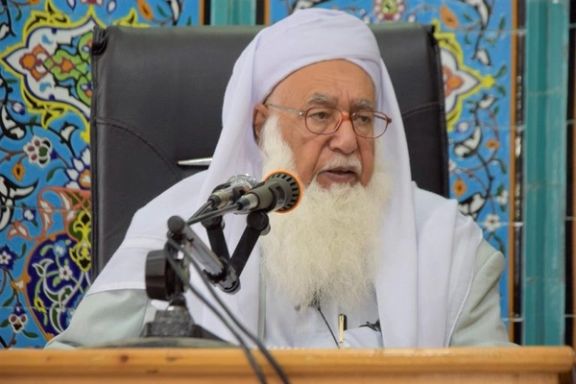
Gorgij who served as the Sunni imam of Azad Shahr, 35 kilometers from Galikosh, was dismissed as Friday Imam of the Sunni community of Azad Shahr in Golestan in December 2021 by Supreme Leader Ali Khamenei’s representative in the province for protesting to Shiites slandering Sunni caliphs.
Khamenei’s provincial representatives have the power to appoint and sack not only Shiite but also Sunni imams.
“Authorities have told me that my participation in Friday prayers is not befitting. My presence at Friday prayers is people’s wish not my own,” Gorgij told his supporters who had rallied outside his home in Galikosh Friday. “A government that is not on people’s side is not worthy of ruling,” he said.
Sistan and Baluchestan is Iran's largest but least developed province where around two-thirds of the population live in extreme poverty. The northern part of the province, Sistan, is predominantly Shiite while the southern part, Baluchestan, is Sunni majority.

As Tehran intensified threats against Europe over prospects of designating the IRGC as a terrorist group, hardliner daily Kayhan threatened military attack on EU forces.
The firebrand Hossein Shariatmadari, the editor of the flagship hardliner newspaper -- which is funded by the Supreme Leader – condemned the European Parliament’s resolution, which was passed overwhelmingly on January 19, calling on the EU to list the IRGC as a terrorist organization.
“The European Union does not know that this action will backfire and make the armed forces of the Islamic Republic’s attacks on the military of the EU member states legal and legitimate,” he said.
Shariatmadari, who often speaks for Ali Khamenei, added that if the EU council acts on the resolution by the parliament and designates the Guards, the Islamic Republic will retaliate and designate "the forces of the European Union member states as terrorists".
Known for his repeated calls to close the Strait of Hormuz in the Persian Gulf in response to any punitive measure against Iran by the international community, Shariatmadari said "In this case, we will deal with them as we deal with other terrorists."
He emphasized that “EU-affiliated forces have been present in the region and are available to us."
The regime’s saber-rattling had started even before the vote but has intensified since the Thursday session.
Malek Shariati, the spokesman of the Parliament's Energy Committee, also threatened that if the IRGC is officially listed as a terrorist group in Europe, "their forces will be terrorists in our opinion, and the entire European commercial transit route in the region will no longer be safe."
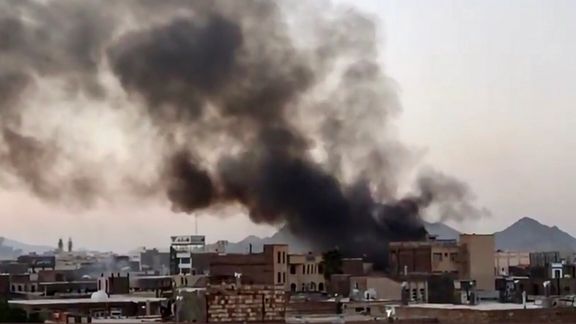
Ali Khamenei’s representative in Sistan-Baluchestan Province has strongly blamed the Raisi government for the shortcomings in the impoverished and restive region.
Video footage from the December 29 inauguration ceremony of the new governor of the southeastern province, IRGC Brigadier General Mohammad Karami, contains parts of a speech by Supreme Leader’s representative Mostafa Mahami, and some lawmakers.
Mahami who also serves as the Shiite Friday Imam in the Sunni majority province capital, Zahedan, is seen in the video criticizing the government of President Ebrahim Raisi for economic hardships resulting from high inflation.
“Is it weakness [of the government], or God forbid, we are facing the mafia [of profiteers], or the ministers and authorities cannot stand against these mafias,” he said.
“I told the president that all governments have craftily made rosy reports, but we need to see the outcome in people’s subsistence,” Mahami said while asking officials to tell him that people’s problems will not be solved by mere “talking therapy” and saying things should happen without taking action.
Mahami also strongly criticized the foreign ministry for failing to resolve the dispute with the Taliban over Iran's share of the waters of Helmand (Hirmand in Persian) and revival of the Afghan-Iranian 1973 water treaty.
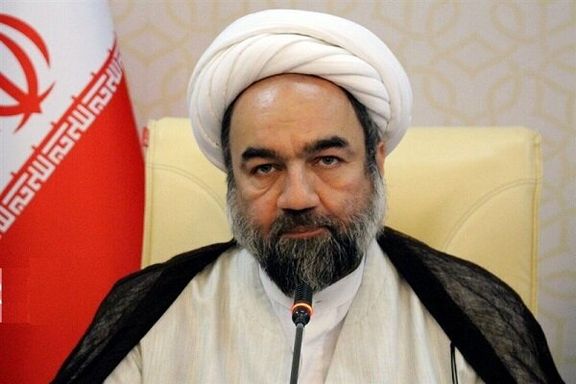
“The foreign ministry has been extremely useless in pursuing Sistan’s share of the waters,” he said. “You rattle sabers for the US but don’t have what it takes to secure your rights from Afghanistan?” he asked.
Tehran has for decades complained about not always receiving its fair share of the water. In 1999, for instance, the Taliban turned off the flow completely. In August 2021, a Taliban spokesman dismissed as "enemy propaganda" reports and a video circulating on social media showing waters flowing from the Kamal Khan Dam towards Iran, insisting the water was not for Iran.
Sistan is the northern, Shiite majority part of the province while Baluchestan refers to the southern, Sunni majority part. The province has suffered heavily from draught and seen hundreds of villages abandoned in the past two decades.
The new governor, Karami, who served as the commander of IRGC Ground Forces in southeastern Iran replaced Hossein Modarres Khiabani following the escalation of protests in the Sunni majority areas and particularly its capital Zahedan.
The Sunni Baluch population have taken to the streets in Zahedan and several other cities of the province every Friday after prayers since September 30 when government forces cracked down on protesters after prayers led by the popular cleric Mowlavi Abdolhamid in Zahedan and killed more than 80 protesters.
This week locals have reported extra heavy security measures in Zahedan including check points on all roads leading to the city and around Makki Mosque where Abdolhamid delivers his fiery speeches every Friday to thousands of Sunnis, presumably in preparation for stopping the flow of worshippers to the mosque this Friday.
In his sermons Abdolhamid has protested to the “mass arrests on the streets” and accused the authorities of torturing detainees until they accept crimes that they never committed. He has also said he holds Khamenei responsible for the violence against Sunni Baluchis and other protesters.
The province, Iran's least developed where around two-thirds of the population live in extreme poverty, is located on a drug trafficking route from neighboring Afghanistan and is known for one of the highest counts of executions in the country which are often related to drug trafficking.
According to Baluch activists one-third of over 500 executions in the country in 2022 involved people of Baluch ethnicity.
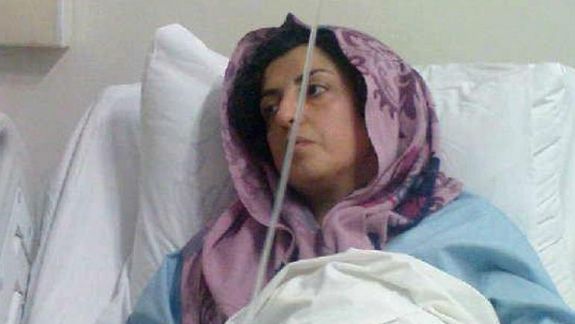
Imprisoned civil and human rights activist Narges Mohammadi has released a harrowing account of what is happening inside the women's ward of Tehran’s notorious Evin prison.
In a document published on Thursday, she recounted details about women who have been suffering from tough sentences, long periods of time spent in solitary confinements, harsh interrogations, and framing the detainees for crimes they did not commit.
Mentioning the names of 58 out of 61 prisoners, she also shed light on the conditions that these women are being kept in, including their difficulties to access medical care and treatment.
The prominent activist described solitary confinement in wards controlled by the intelligence ministry and the Revolutionary Guard as “gross violations of human rights and acts of white torture,” saying that 57 out of 58 female prisoners have experienced "terrible inhumane tortures". Most of these women, especially those who have been in solitary confinement for a long time, suffer from complications and diseases caused by confinement in solitary cells.
This imprisoned human rights activist called solitary confinement in security cells among gross violations of human rights and acts of white torture. These women spent from several months to about two years in solitary confinement, some of without any human contact.
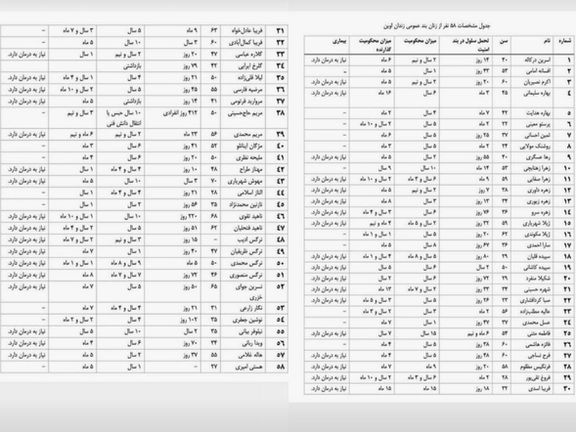
Maryam Haj-Hosseini spent 412 days in a solitary and was completely isolated and alone; Zahra Zahtabchi spent all her 14-months imprisonment in the cells of Ward 209 (that belongs to the Intelligence Ministry); and Maryam Mohammadi spent her 23 months of imprisonment in those cells in inhumane conditions, she said in her report.
She added that Niloufar Bayani spent nine months in solitary cells of Ward 209, while Sepideh Kashani, Zahra Safaei, Mahvash Shahriari, Fariba Kamalabadi each spent about eight months in those cells. According to her, dual nationals taken hostage, 68-year-old Nahid Taqavi and Fariba Adelkhah spent months in solitary confinement at Ward 209.
Mohammadi herself has been in solitary confinement for five months of her imprisonment.
She also provided a list of the sentences of these women and said most are facing very long-term incarceration, some of whom given up to 15 years behind bars.
In her list, Mohammadi also mentioned those who need medical care but are denied any treatment.
She also highlighted that dozens of political prisoners across Iran are not being kept in wards dedicated for prisoners of conscience and are kept among criminals.
Earlier in the month, the Swedish Olof Palme Foundation announced its 2023 award to three female activists, including Narges Mohammadi, for their efforts in the fight for women's freedom.
Mohammadi has been to jail several times over the past two decades. She was freed from Evin Prison in September 2020 after serving more than five years when she had no contact with her husband and children for long periods of time. She was arrested again and sentenced to eight years in jail and 70 lashes by the Revolutionary Court on trumped-up political charges again in a five-minute trial in late January 2022.
In another message from prison in June, Mohammadi called on right organizations to put pressure on the Islamic Republic for its crackdown on popular protests and said the international community should condemn the “killing of people on the streets” similar to pressure on Russia for its invasion of Ukraine.

Israeli Prime Minister Benjamin Netanyahu Thursday met US National Security Advisor Jake Sullivan and discussed Iran as well as expanding the Abraham Accords.
Hosting his first senior member of President Joe Biden's administration Netanyahu said they had discussed prospects for a diplomatic breakthrough between Israel and Saudi Arabia.
Since nuclear talks with Iran came to a deadlock last September, the US has increased closer political and military contacts with Israel.
Sullivan also heard from the Palestinians that their hopes of achieving statehood - long a Riyadh condition for normalizing relations with Israel - were being endangered by Israeli actions.
Netanyahu has pledged to forge Saudi ties that would round out normalization pacts he signed with the United Arab Emirates and Bahrain in 2020 dubbed the "Abraham Accords".
Their discussions were followed by a virtual meeting among Sullivan and his Israeli, Emirati and Bahraini counterparts. They discussed cooperation in areas such as emerging technology, regional security and commerce, according to a joint statement.
Israel and Persian Gulf allies share fears over Iran, but Netanyahu's return at the head of a religious-nationalist coalition government has stoked concern of an escalation in the decades-old conflict with the Palestinians.
Hosting Sullivan in the West Bank hub city of Ramallah, Palestinian President Mahmoud Abbas urged US intervention.
On Wednesday, Saudi Arabia's foreign minister Prince Faisal bin Farhan Al Saud urged Israel's new government to engage seriously on resolving the conflict.